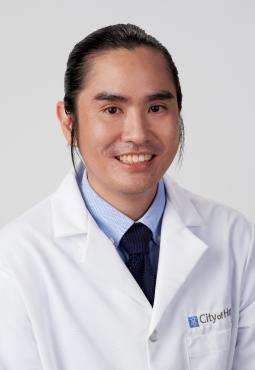
If you've ever had a family member or friend who has been diagnosed with cancer, they may have mentioned talking with their doctor about clinical trials. They may even have participated in one.
Clinical trials lead to groundbreaking therapies for cancer and other serious illnesses. They can be the best way to get the most advanced, leading-edge treatment, providing lifesaving benefits to patients participating in them.
Here are five key reasons why clinical trials are so important.
Clinical trials offer new options. Typically, clinical trials study a promising new treatment that is on the path to FDA approval. People in clinical trials have access to new drugs or treatments before they are widely available. For patients who face potentially life-threatening diseases and need more than their current treatment or who have tried all other treatment options, clinical trials provide new hope.
Also read: Retired Teacher Credits Lung Cancer Clinical Trials With Saving His Life
Clinical trials provide crucial insights. Clinical trials systematically and rigorously test to determine how effective an investigational treatment is and how its benefits and safety compare to existing treatments. They provide reliable information that helps doctors and patients choose between alternatives.
Clinical trials test for safety and efficacy. Before a new treatment is used in clinical practice, we want to make sure it is safe and effective. Clinical trials go through four distinct phases and many regulatory agencies before the treatment can be approved. Safety checks continue after the treatment is brought to market.
Clinical trial participants receive expert treatment and care. Patients who take part in a clinical trial get excellent attention and are carefully monitored and cared for. And because clinical trials are where the next generation of treatment comes from, the physicians, clinicians, and researchers developing and delivering the treatment are experts on the leading edge of their fields.
Also read: Groundbreaking Science And Common Bonds Keep Multiple Myeloma Patient Moving Forward
Present and future generations both benefit. Behind nearly every advance in cancer treatment are thousands of patients who volunteered to participate in clinical trials. And one cancer breakthrough today can lead to others down the road. When you participate in a clinical trial, your treatment may help with your condition now, and it may also improve care for patients in the future.
As a founding member of the National Comprehensive Cancer Network, and its only member institution in Orange County, City of Hope is a leader in advancing clinical trials in the region. We offer more than 1,000 clinical trials each year, and our more than 400 physicians and 1,000 scientists and researchers focus on only one thing – ending cancer. In fact, one in four of our patients are enrolled in a clinical trial. And we are keenly focused on increasing diversity in clinical trials nationwide, removing barriers to care and making these studies of leading-edge cancer treatments more accessible to as many patients as possible.
Also read: City of Hope Orange County’s Edward S. Kim, M.D., M.B.A., Named A National Diversity Leader
Clinical trials are the key to finding new ways to understand, treat, and ultimately defeat cancer. And they offer an opportunity for patients to take an active role in their health care in partnership with the doctors, medical organizations and government agencies or private companies that sponsor the research. If you have been diagnosed with cancer, ask your oncologist if you should be part of a clinical trial.
Danny Nguyen, M.D., is a medical oncologist and hematologist at City of Hope Huntington Beach and City of Hope Irvine Sand Canyon. He leads groundbreaking clinical trials in lung cancer and aims to reduce disparities in cancer care by improving access to clinical trials for the Orange County community.
- Newport Beach Fashion Island: (949) 763-2204
- Newport Beach Lido: (949) 999-1400
- Irvine Sand Canyon: (949) 333-7580
- Huntington Beach: (714) 252-9415
